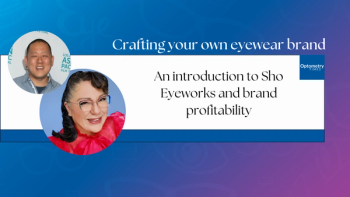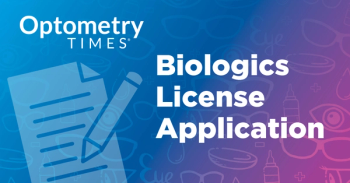
Transcript: Optometry Times® news summary 2/7/2021
Optometry news updates
With this week’s eye care update, I’m Gretchyn Bailey, editor in chief and content channel director of Optometry Times.
MeiraGTx Holdings has received U.S. Food and Drug Administration has granted Fast Track designation to its AAV-CNGA3 gene therapy product candidate for the treatment of achromatopsia or ACHM caused by mutations in the CNGA3 gene.
AAV-CNGA3 is an investigational gene therapy treatment designed to restore cone function, delivered to the cone receptors at the back of the eye via subretinal injection, according to the company.
The FDA’s Fast Track process is designed to expedite the development and review of drugs used to treat serious conditions and fill an unmet medical need.
MeiraGTx and Janssen Pharmaceuticals are jointly developing AAV-CNGA3 as part of a broader collaboration to develop and commercialize gene therapies for the treatment of inherited retinal diseases. MeiraGTx is conducting an open-label, dose-escalation Phase 1/2 clinical trial of AAV-CNGA3 in patients with ACHM due to mutations in the CNGA3 gene.
AAV-CNGA3 has already been granted Orphan Drug designation by the FDA and European Medicines Agency (EMA).
This is the third Fast Track designation MeiraGTx has received for its inherited retinal disease product candidates.
CooperCompanies and EssilorLuxottica have entered into a joint venture agreement to accelerate commercialization of innovative spectacle lenses from SightGlass Vision, which are designed to reduce the progression of myopia in children.
The joint venture will leverage the companies’ shared scientific and product development expertise, strengthening innovation opportunities and go-to-market capabilities, according to the companies. SightGlass Vision was founded in 2016 to deliver science-based treatments to address the myopia epidemic.
New England College of Optometry or NECO is the receipt of a grant from the The Coca-Cola Foundation, the philanthropic arm of The Coca-Cola Company, that will fund a new diversity and inclusion scholarship.
This is the third diversity and inclusion scholarship established at NECO in the past few months, according to the college. In addition to The Coca-Cola Foundation Scholarship, Warby Parker gifted a scholarship to be awarded to two Black scholars that covers tuition for the College’s four-year doctor of optometry program. NECO alum Dr. Alan Glazier gifted scholarship funds with the goal to increase Black and underrepresented minority participation in the field of optometry.
The grant also furthers NECO’s organization-wide program for diversity and inclusion.
Aldeyra Therapeutics finalized the design of its Phase 3 TRANQUILITY trial of 0.25% reproxalap ophthalmic solution for the treatment of dry eye disease. Ocular redness over 90 minutes in a dry eye chamber will be the primary endpoint. About 150 dry eye disease patients are expected to be enrolled per arm. The TRANQUILITY protocol will follow the two-day dosing paradigm, dry eye challenge design, and enrollment criteria of the run-in cohort.
TRANQUILITY and the confirmatory Phase 3 TRANQUILITY-2 trial are expected to initiate in the first half of 2021. Results from both trials are expected in the second half of 2021.
CooperVision has committed funding for the new eye care clinic at The Ohio State University College of Optometry. Contact lens services provided by the clinic include soft contact lens fittings for the correction of myopia, astigmatism, presbyopia, and myopia management for children.
Opened in January, Ohio State’s Optometry Clinic and Health Sciences Faculty Office Building is a 6-story facility with 56 exam rooms. The clinic offers primary vision care, contact lens fittings, dry eye treatment, vision therapy, and pediatric services. The clinic also houses an optical shop with more than 3,000 frames on display.
CooperVision’s support of Ohio State’s new clinic is the first of several expanded partnerships with optometry programs across the nation.
Essilor of America and Luxottica North America each contributed $50,000 in 2020 to
Essilor of America is the Foundation’s founding sponsor and also supplies lenses and related services.
This is Luxottica North America’s second year supporting the Foundation.
The Essilor Vision Foundation provides lenses, frames, and vision resources to help eye doctors give back in their communities.
The Foundation also provides rental equipment, free lenses and lab services, and even completed prescription glasses to organizations that focus on vision services.
Genentech shares positive topline results from two identically designed global Phase 3 studies, TENAYA and LUCERNE, evaluating its investigational bispecific antibody faricimab in people living with neovascular or “wet” age-related macular degeneration.
Both studies met their primary endpoint and showed that people receiving faricimab injections at fixed intervals of up to every 16 weeks achieved visual acuity outcomes that were non-inferior to those receiving aflibercept injections every 8 weeks. Some 45% of people in both studies were treated with faricimab every 16 weeks during the first year.
According to the company, this is the first time this level of durability has been achieved in a Phase 3 study of an injectable medication for neovascular AMD.
In both studies, faricimab was generally well-tolerated with no new or unexpected safety signals identified.
Transitions Optical launches a new education course called, “Offer Your Patients the Best” to reveal patient insights and research demonstrating that wearers prioritize darkness in photochromic lenses.
Presented by Chris King and Mayara Castillo from Transitions and Dr. Chris Lievens, the course shows the best a lens can offer from the patient’s perspective and how to evaluate photochromic technologies entering the market.
The course includes research that shows that after 2 weeks of trial, wearers were significantly more satisfied with the level of darkness and activation speed of Transitions Signature GEN 8 lenses (with ANSI category 3 darkness), over a lens that has ANSI category 2 darkness but is a bit faster to fadeback. The primary reason for preferring Transitions Signature GEN 8 lenses was that the lenses got darker outdoors. The wearers were similarly satisfied with the fadeback speed of both lenses, showing that without a premium level of darkness, the wearer may not be as satisfied. Research also shows that protection and outdoor darkness are the two top expectations for photochromic lenses.
Now, I talk with Chief Optometric Editor Dr. Ben Casella about 2021 industry meetings.
Newsletter
Want more insights like this? Subscribe to Optometry Times and get clinical pearls and practice tips delivered straight to your inbox.













































